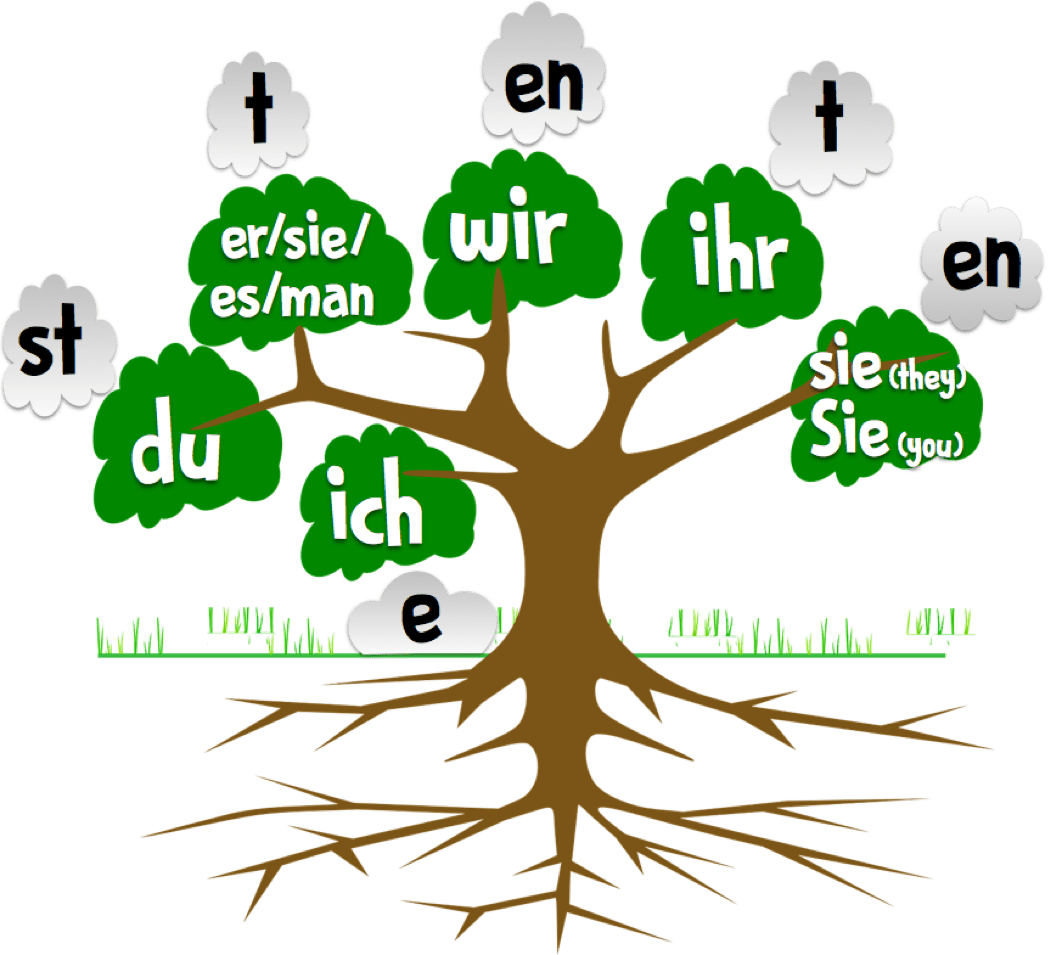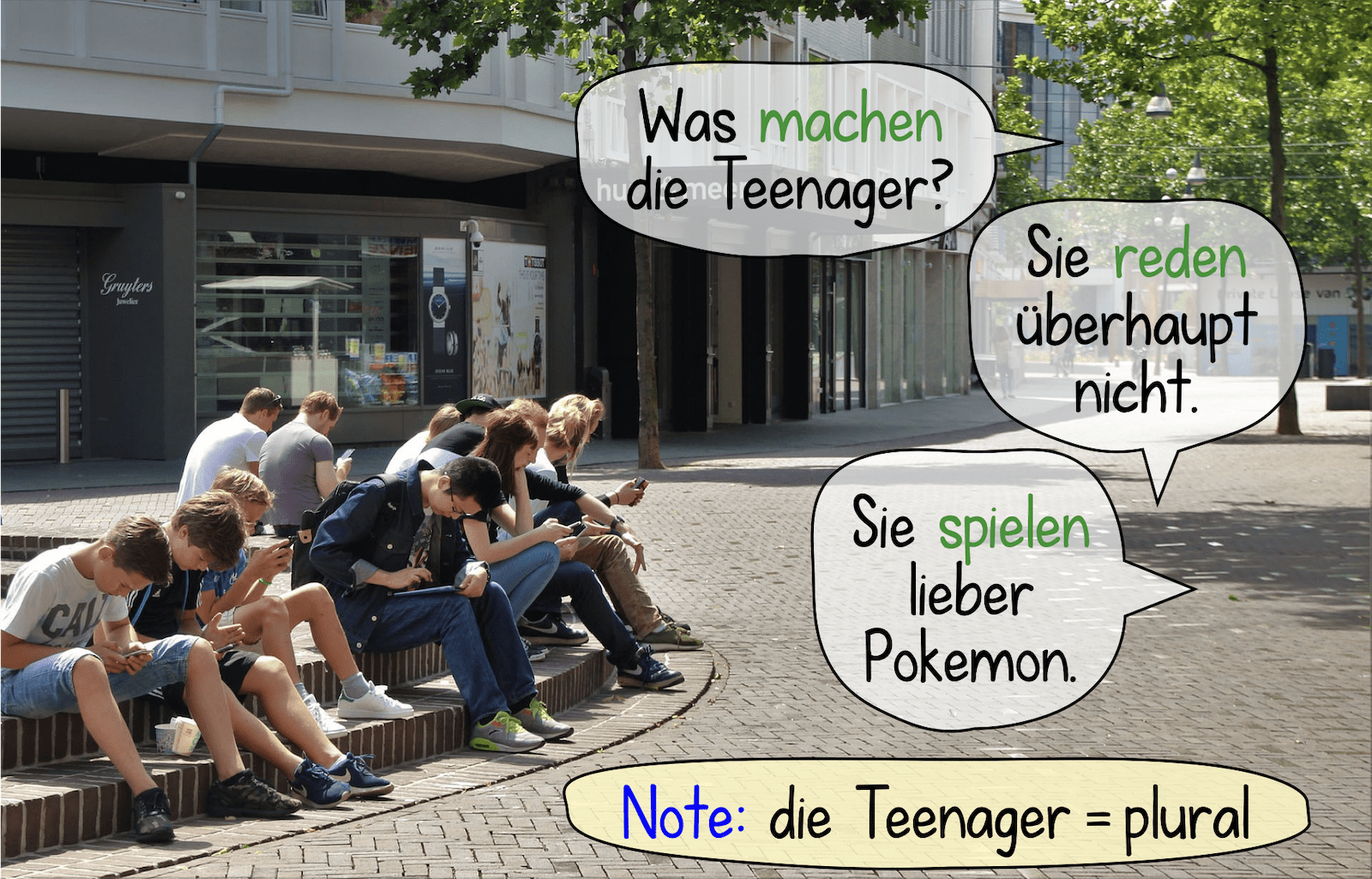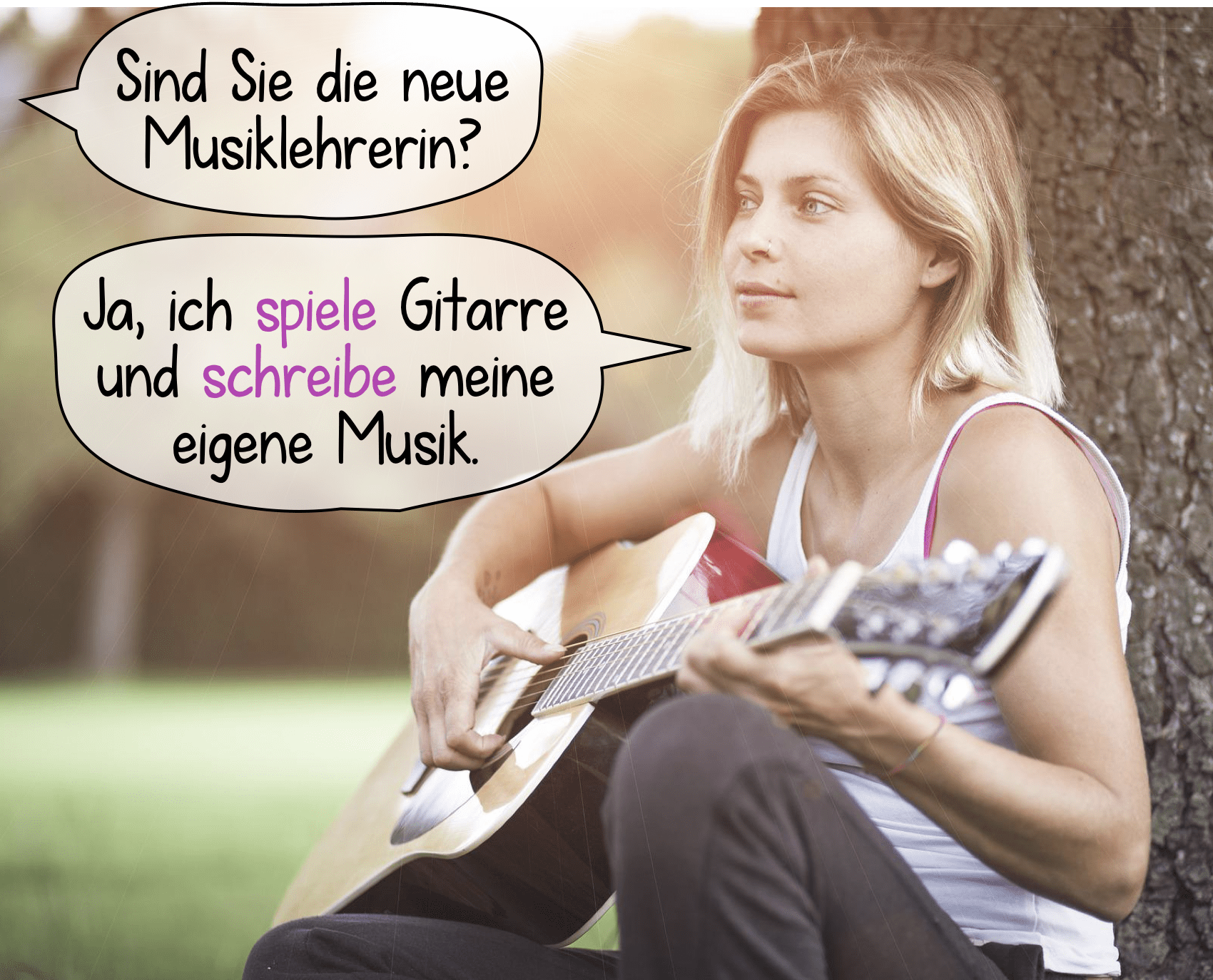Question 1: The Conjugation Pattern of Regular Verbs
Use the sample verb conjugations below to answer the questions. This will help you to identify the patterns in the conjugation of regular verbs.
 Regular Verb 1: spielen - to play
Regular Verb 1: spielen - to play
ich spiele - I play
du spielst - you play (to one familiar)
er/sie/es spielt - he/she/it plays
wir spielen -- we play
ihr spielt -- you play (to 2+ familiars)
sie spielen -- they play
Sie spielen -- formal -- you play
Regular Verb 2: arbeiten - to work
ich arbeite - I work
du arbeitest - you work (to one familiar)
er/sie/es arbeitet - he/she/it works
wir arbeiten -- we work
ihr arbeitet -- you work (to 2+ familiars)
sie arbeiten -- they work
Sie arbeiten -- formal -- you work
Note 1: Regular verbs with a stem that ends with a t or d require an extra e in the 2nd person singular (du), 3rd person singular (er/ sie / es/ man) and 2nd person plural (ihr).
Note 2: Verb stems ending in ß, z or s add only a t in the 2nd person singular (du) --> du heißt, du tanzt, du reist (you travel).
a The pronouns wir (we) and sie (they) always have the same conjugation.
b The ending for all regular verbs for the pronoun ich is .
c The ending for all regular verbs for the pronoun du is . [*but see Note 2 above]
d When you take the en ending off an infinitive verb, the remainder is called the verb .
e The pronouns er, sie (she), es, man and ihr all have the same ending:
Question 2: Select the correct verb conjugation for each space.
Colour Coding for Nouns: •plural •masculine •feminine •neuter
 1 Wir hart im Deutschunterricht
1 Wir hart im Deutschunterricht  , denn wir viele neue Wörter.
, denn wir viele neue Wörter.
2 Die Schüler und Schülerinnen die Lehrerin, wie alt sie ist. „Dreißig Jahre alt“, sie, obwohl sie viel älter ist  .
.
3 Ich morgen ein neues Kleid  .
.
4 Sie (she) heute nicht zur Schule, denn sie ist krank  .
.
5 Naveen Deutsch und Chinesisch.
6 wir heute Sport? -- Nein, wir am Computer.
7 Ihr aus Griechenland? Wie ihr Deutschland?
 Question 3: Select the correct verb for each space, applying the correct endings for each pronoun or subject.
Question 3: Select the correct verb for each space, applying the correct endings for each pronoun or subject.Colour Coding for Nouns:
•plural •masculine •feminine •neuter
1 Sind Sie die neue Musiklehrerin? Sie Gitarre?
2 Meine Mutter ist eine tolle Köchin . Sie viele Dinge
. Sie viele Dinge im Delikatessengeschäft.
im Delikatessengeschäft.
3 Die Mathelehrerin sehr hart.
4 Caitlin und Lucy viele Hausaufgaben.
5 Timur aus Kasachstan. Kelly und Derwin aus Korea. Alle drei Schüler Deutsch und Chinesisch. Sie in Melbourne.